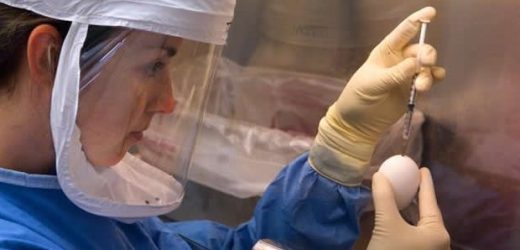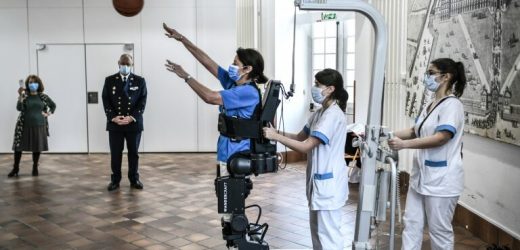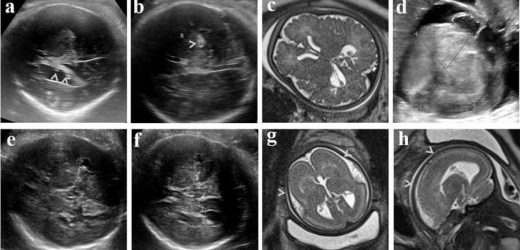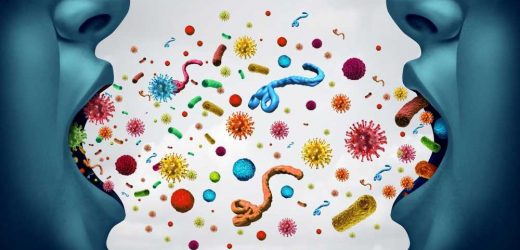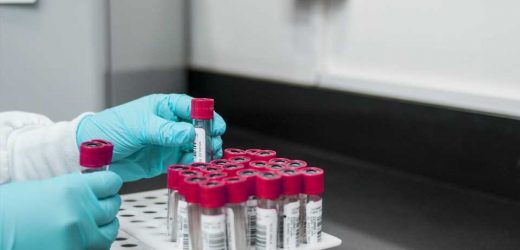2-minute bursts of vigorous activity may increase longevity
Two-minute bursts of vigorous physical activity—totaling 15 minutes a week—are associated with a reduced risk of death, cancer, and heart disease, according to new research. The study shows that relatively low amounts of weekly vigorous physical activity may result in…
Read MoreHandheld diagnostic all-in-one lab kit could increase the speed and volume of disease testing
Using swarms of pinhead-sized magnets inside a handheld, all-in-one lab kit, UCLA researchers have developed a technology that could significantly increase the speed and volume of disease testing, while reducing the costs and usage of scarce supplies. The automated tests…
Read MoreExoskeleton helps wounded French soldiers get back on their feet
When Cesar stood up for the first time in years with the help of a robotic exoskeleton, the quadriplegic former French soldier said what he noticed most was being able to look people in the eye. The exoskeleton has recently…
Read MoreHaven’t Seen Your Doctor in a Few Years? You May Need to Find a New One
When Claudia Siegel got a stomach bug earlier this year, she reached out to her primary care doctor to prescribe something to relieve her diarrhea. The Philadelphia resident was surprised when she received an online message informing her that because…
Read MoreWhole-genome sequencing offers a more comprehensive prenatal test
BGI-Research and the Maternal and Child Health Hospital of Hubei Province (MCHH) have published whole-genome sequencing research results in npj Genomic Medicine. These results have revealed the genomic architecture of fetal central nervous system (CNS) anomalies systematically in a large…
Read MoreThe bacteria we breath in everyday
In a recent study published in the journal PNAS, researchers surveyed the global airborne bacterial communities to understand their community structure and biogeographic distribution patterns. In addition, they examined their interactions with Earth’s other microbiomes, particularly surface habitats. Study: Global…
Read MoreHow did alcohol consumption change during the COVID-19 pandemic in the state of Wisconsin?
In a recent study posted to the medRxiv* preprint server, researchers evaluated the patterns of alcohol use at three different time points during the coronavirus disease 2019 (COVID-19) pandemic in Wisconsin. Study: Changes in Alcohol Consumption during the COVID-19 Pandemic:…
Read MoreResearch reveals key differences in the brains of boys and girls with binge eating disorder
Conducting the first known comparison of the brains of boys and girls with binge eating disorder, a team of researchers from the Keck School of Medicine of USC found significant differences in brain structure between the sexes. The research was…
Read MoreCould Nivolumab Prevent Oral Cancer in High-Risk Patients?
The immune checkpoint inhibitor nivolumab (Opdivo) appears to prevent the transformation of oral proliferative leukoplakia (PL), a high-risk precancerous disease, into oral cancer, suggest the results from a phase 2 study. “We think that immunotherapy as a preventative strategy, either…
Read MoreThe gut microbiome’s supersized role in shaping molecules in our blood
Scientists from the Institute for Systems Biology (ISB) have shown which blood metabolites are associated with the gut microbiome, genetics, or the interplay between both. Their findings will be published in the journal Nature Metabolism and have promising implications for…
Read More
